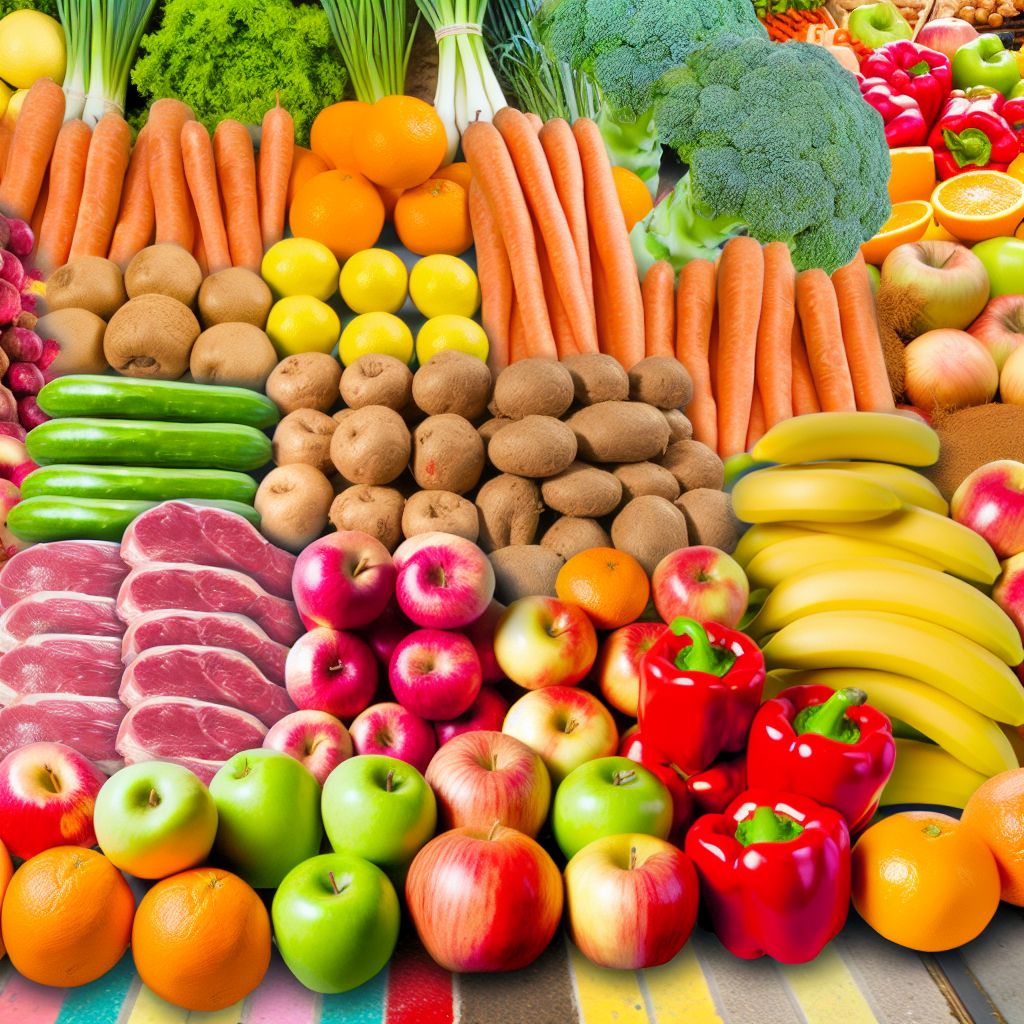Are you feeling fatigued, noticing dull skin, or struggling to maintain energy levels? The answer could lie in your diet. Vitamins like Vitamin A and Vitamin B12 are essential nutrients that support good health. While Vitamin A enhances your vision, skin health, and immune system, Vitamin B12 boosts energy, brain function, and red blood cell production.
The best part? You don’t need fancy supplements to reap their benefits. Everyday foods are packed with these vitamins, and incorporating them into your meals is easier than you think. In this guide, we’ll explore their importance, the best sources, and practical ways to include them in your diet.
What Are Vitamin A and Vitamin B12?
The Basics of Vitamin A
Vitamin A is a fat-soluble nutrient often associated with eye health, but its benefits don’t stop there. It helps maintain glowing skin, strengthens immunity, and supports cell growth. If you’ve ever experienced dry eyes, night blindness, or persistent infections, a Vitamin A deficiency might be to blame.
Vitamin A comes in two forms: preformed Vitamin A, found in animal products, and provitamin A carotenoids, found in plant-based foods. Both are crucial, offering flexibility for different diets.
The Role of Vitamin B12 in Your Body
Vitamin B12, or cobalamin, is known as the “energy vitamin,” thanks to its ability to convert food into energy and support brain health. It’s also vital for producing red blood cells and DNA. Without enough B12, you may feel fatigued, experience memory issues, or have tingling sensations in your extremities.
Vegetarians and vegans often struggle to get sufficient Vitamin B12 naturally, as it’s predominantly found in animal-derived products. For plant-based eaters, fortified foods and careful planning are essential for meeting daily requirements.
Foods Rich in Vitamin A
Animal-Based Sources of Vitamin A
Animal sources provide preformed Vitamin A, which your body can use directly. Here are some excellent foods to consider:
- Beef Liver: One serving of this superfood delivers several times your daily Vitamin A requirement. If you’re adventurous with your diet, it’s worth a try.
- Eggs: Versatile and easy to prepare, eggs offer a healthy dose of Vitamin A alongside other essential nutrients.
- Dairy Products: Milk, cheese, and butter contain Vitamin A, especially if fortified.
- Fish Oils: Cod liver oil is especially rich in the preformed version of Vitamin A.
Plant-Based Sources of Vitamin A
For those who prefer plant-based foods, options rich in provitamin A carotenoids are plentiful:
- Sweet Potatoes: Packed with beta-carotene, one baked sweet potato provides 150% of your daily Vitamin A needs.
- Carrots: Perfect for snacking or adding to salads and stir-fries, carrots are a fan favorite.
- Leafy Greens: Options like spinach, kale, and collards deliver beta-carotene along with other key nutrients.
- Mangoes: Sweet and tropical, mangoes are a Vitamin A-rich treat that’s perfect for smoothies or salads.
Foods Rich in Vitamin B12
Animal Products Packed with Vitamin B12
Animal-derived foods are the most reliable sources of Vitamin B12. Here’s where to find it:
- Red Meat: Beef, lamb, and pork are excellent choices for both Vitamin B12 and high-quality protein.
- Fatty Fish: Salmon, trout, and tuna are not only rich in Vitamin B12 but also provide healthy omega-3 fatty acids.
- Shellfish: Clams and crab are especially rich in B12—a single serving of clams can meet your daily needs multiple times over.
- Eggs and Dairy: Affordable and versatile, eggs and milk are convenient choices for maintaining your B12 levels.
Fortified Foods for Vegetarians and Vegans
For plant-based eaters, fortified foods provide an effective way to meet Vitamin B12 requirements:
- Breakfast Cereals: Many cereals are fortified with B12—check the label for specifics.
- Plant-Based Milk: Soy, almond, and oat milk are often fortified with Vitamin B12, making them great dairy alternatives.
- Nutritional Yeast: Popular in vegan cooking, fortified nutritional yeast is perfect for seasoning dishes or making "cheesy" sauces.
How to Incorporate Vitamin A and B12 Foods into Your Diet
Making room for more Vitamin A and B12-rich foods in your diet doesn’t need to be complicated. Start with small, intentional steps.
Breakfast
Scramble eggs with spinach for a nutrient-dense start to the day, or pair fortified cereal with plant-based milk and fresh mango slices for a vitamin-packed, plant-based option.
Lunch
A kale salad with shredded carrots, grilled chicken, and a mango dressing delivers plenty of Vitamin A and B12. If you prefer something heartier, try a tuna sandwich on whole-grain bread.
Dinner
Sweet potatoes roasted alongside salmon create a filling, nutrient-packed dinner. For vegetarians, a lentil curry with spinach and fortified nutritional yeast is both satisfying and rich in vitamins.
Snacks
Munch on baby carrots with hummus or yogurt for Vitamin A, or grab a hard-boiled egg or cheese stick for a quick Vitamin B12 boost.
Why Prioritize Vitamin A and B12 in Your Diet?
Add more Vitamin A and B12 to your daily meals, and you’ll experience tangible improvements in both energy and overall health. These nutrients aren’t just good for your body—they make you feel good too.
Personally, I’ve noticed a real difference since focusing on meals that are rich in these vitamins. My energy levels have stabilized, my skin looks healthier, and even my concentration feels sharper. It proves that small, intentional changes can lead to big results over time.
Conclusion
Vitamin A and B12 are vital for your health, and meeting your daily needs is simpler than you might think. Foods like carrots, sweet potatoes, salmon, eggs, and fortified cereals make it easy to eat your way to better energy, immunity, and skin health.
Start small: swap out one snack a day for a nutrient-dense alternative or try a new recipe featuring Vitamin-rich ingredients. These changes don’t just benefit your body—they’ll enhance how you feel every single day. The journey to better health is always one forkful at a time.
